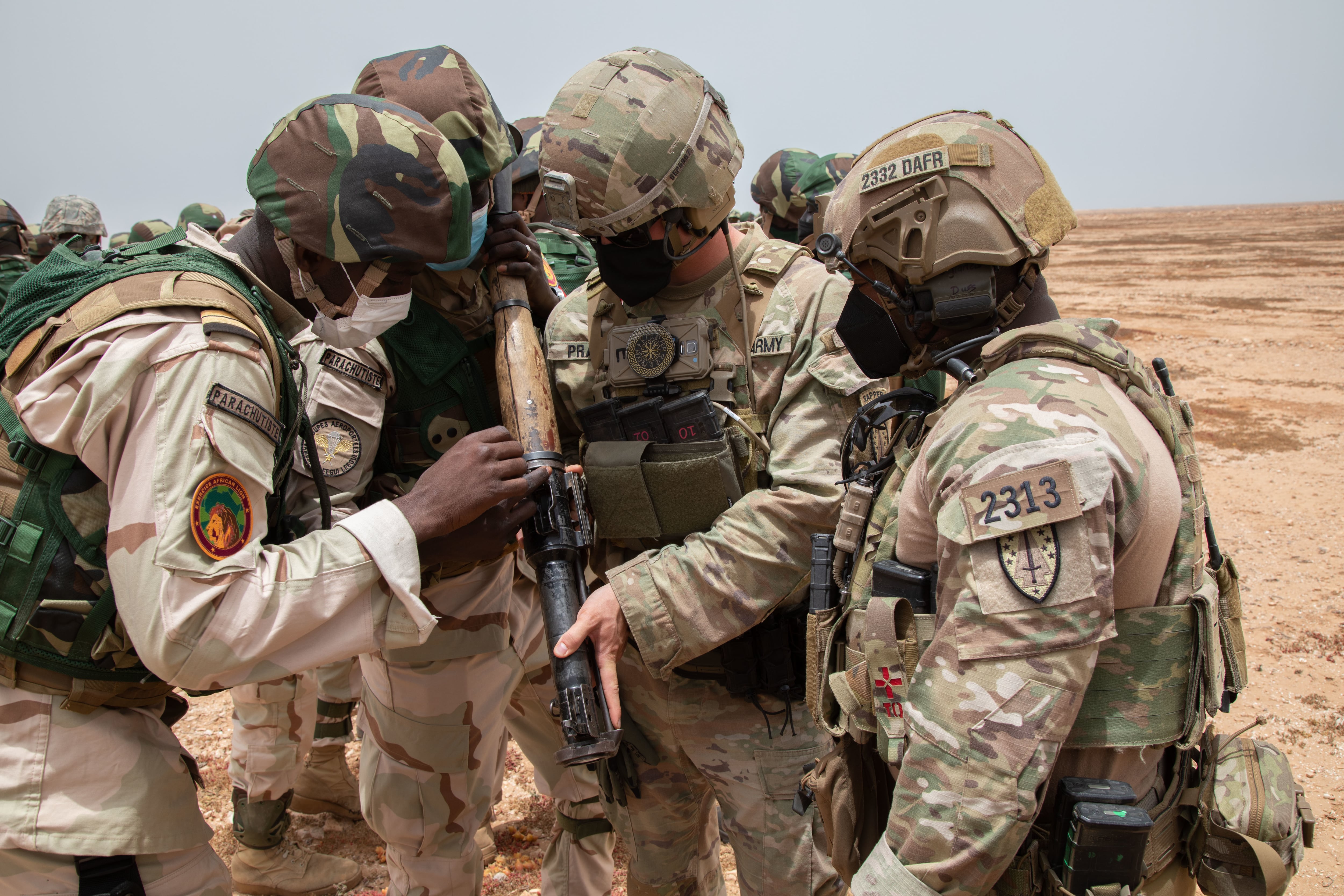UNITED NATIONS — Counter-terrorism experts said Tuesday that Africa is now the world’s terrorism hot spot, with half of the victims killed last year in sub-Saharan Africa, though al-Qaida and Islamic State affiliates remain widespread, persistent and active elsewhere around the globe.
Interpol, the international criminal police agency, also reported during a panel discussion at the U.N. that terrorism linked to extreme right-wing ideology increased an estimated 50-fold over the past decade, particularly in Europe, North America and parts of the Asia-Pacific.
RELATED

The experts see other trends: Deteriorating global security is making the terrorism threat “more complex and decentralized.” Extremists are increasingly using sophisticated technology, and drones and artificial intelligence have opened new ways to plan and carry out attacks.
The United Nations this week is hosting its third high-level conference of heads of counter-terrorism agencies. Tuesday’s panel on assessing current and emerging terrorist trends and threats brought together experts from the U.N., Interpol, Russia, the United States and Qatar, and Google’s senior manager for strategic intelligence.
The overall theme for the week is addressing terrorism through reinvigorated international cooperation. U.N. Secretary-General Antonio Guterres said during Monday’s opening session the key is to unite not only in foiling attacks but also critically to focus on preventing terrorism by tackling poverty, discrimination, poor infrastructure, gross human rights violations and other underlying drivers.
At Tuesday’s session, it was Africa that took the spotlight.
“Africa has emerged as the key battleground for terrorism, with a major increase in the number of active groups operating on the continent,” U.N. Assistant Secretary-General Khaled Khiari said, noting that local political, economic and social “fractures,” porous borders and “identity-based mobilization” had fueled the emergence of al-Qaida and the Islamic State group, also known as ISIS.
Several areas of the continent, from Burkina Faso and the Sahel and more broadly to Chad and Sudan, still face the consequences of the flow of weapons and foreign fighters from Libya, Khiari said.
Oil-rich Libya plunged into chaos following the NATO-backed uprising that toppled and killed longtime dictator Moammar Gadhafi in 2011. After the Islamic State’s self-styled caliphate was defeated in Iraq in 2017, many of its foreign fighters fled to the North African nation.
Col. Gen. Igor Sirotkin, deputy director of Russia’s Federal Security Service and head of its National Anti-Terrorism Committee, told the meeting that West Africa, especially the Maghreb and the Sahel, “are becoming the epicenter of the Islamist terrorist threat, with the armed terrorist groups expanding their influence, and we see the danger of ISIS being reincarnated as an African caliphate.”
Khiari said the Middle East also continues to suffer “aftershocks” from the wars in Iraq, Syria and Yemen. Interpol’s counter-terrorism director, Gregory Hinds, said al-Qaida and Islamic State-related groups continue to inspire and carry out attacks in Iraq, Syria, Afghanistan, North America, Europe “and now across Africa and Asia at alarming pace.”





